We are optimistic about the growth of organic cotton globally. There is increased consumer demand and strong support for organic agriculture in the international policy space. However, the outlook is positive only if we act now. Scalability remains one of the most significant challenges our sector faces. One of OCA’s main priorities is to create the right conditions to accelerate the growth of organic cotton production. In 2022 we took steps forward by supporting and funding a growing number of farmers switching to organic agriculture, expanding our work to Pakistan, and unlocking additional funds to boost our fieldwork.
The conversion period from conventional to organic agriculture takes up to three years, which is necessary to build up soil fertility and re-establish the balance of the ecosystem. It is the period in which the farmer undertakes all the actions required to achieve organic certification. During this time, all practices prohibited in organic farming apply, and certification bodies conduct annual audits. Farmers can experience lower yields, and as their cotton still needs to be certified organic, they cannot claim the organic premium payment. In short, farmers initially lose money. In addition, they have problems finding high-quality, GMO-free seeds – an essential prerequisite to farming organically. This conversion period can be tough, and many smallholders require support to not give up on converting to organic cotton within the first year.
OCA has always focused on creating the conditions for organic cotton to thrive – by putting farmers first. In 2021, we launched several in-conversion projects to support cotton farmers in navigating the challenges of the in-conversion period. The results were already visible in 2022. Over 23,000 growers participating in the last year's season were in-conversion farmers, almost 30% of our total farmers’ pool. Thanks to the market linkages created by OCA, they have benefited from secure off take and better prices for their cotton. They have also received support through training and access to organic inputs. We are building on last year’s results and lessons learned to consolidate the support for transitioning farmers and take stock of the growing numbers for the 2022-23 season reaching almost 36,000 in-conversion farmers.

Funding is critical to meet the rising demand for organic cotton that we are witnessing worldwide. Empowering farmers in taking the first step of transitioning to organic agriculture and navigating the three years of in-conversion requires continued investment. A crucial objective at OCA is accelerating the transition of conventional farmland to organic agriculture with all its regenerative practices.
In 2022, we established a new Impact funding scheme to bring us closer to this goal. Through our philanthropic partners and donors, we could provide targeted funds to our Implementing Partners to support many Indian cotton farmers transitioning to organic agriculture. In addition, we invested in an ambitious roll-out of regenerative organic demo farms. As a result, our community of certified organic farmers has found our support in leveraging the full transformational scope of regenerative practices.
More funding will drive the much-needed acceleration of in-conversion projects, allowing more farmers to transition from conventional to organic cotton farming with confidence and support. Additional funding also means further training and development projects jointly with our farm group partners, empowering farmers to be self-sufficient.
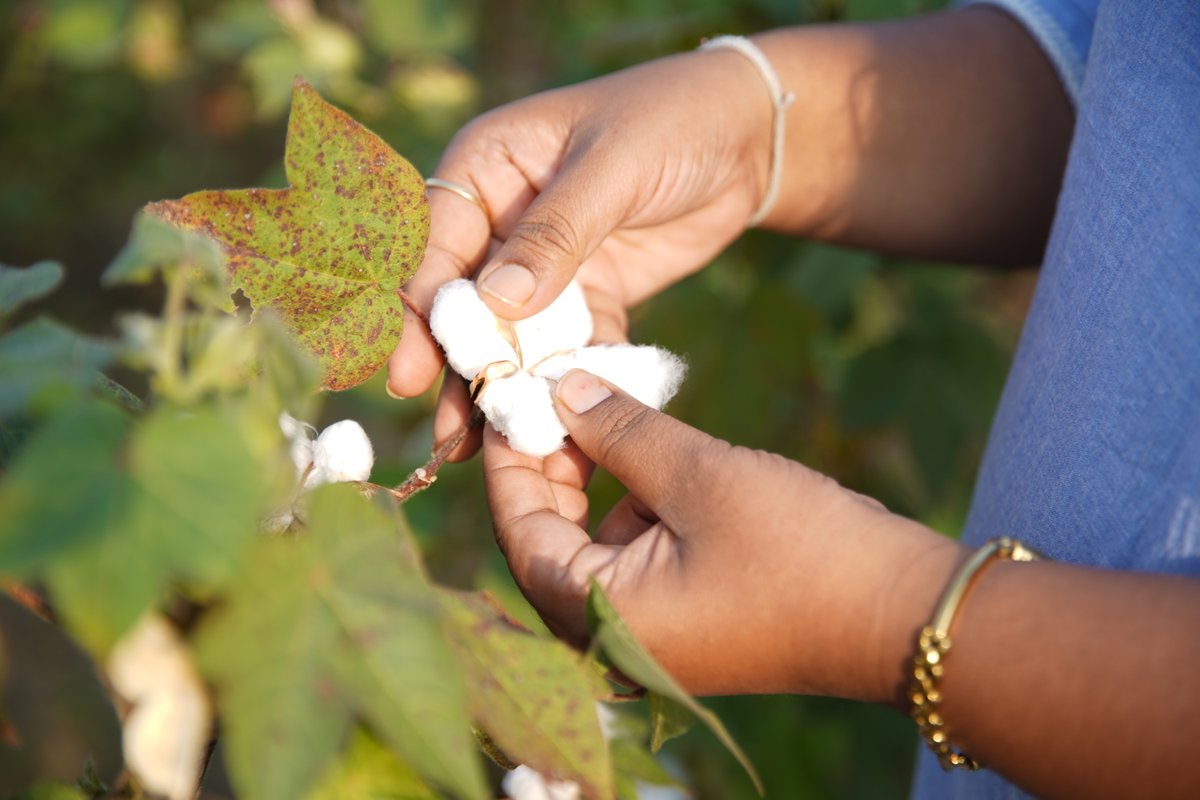
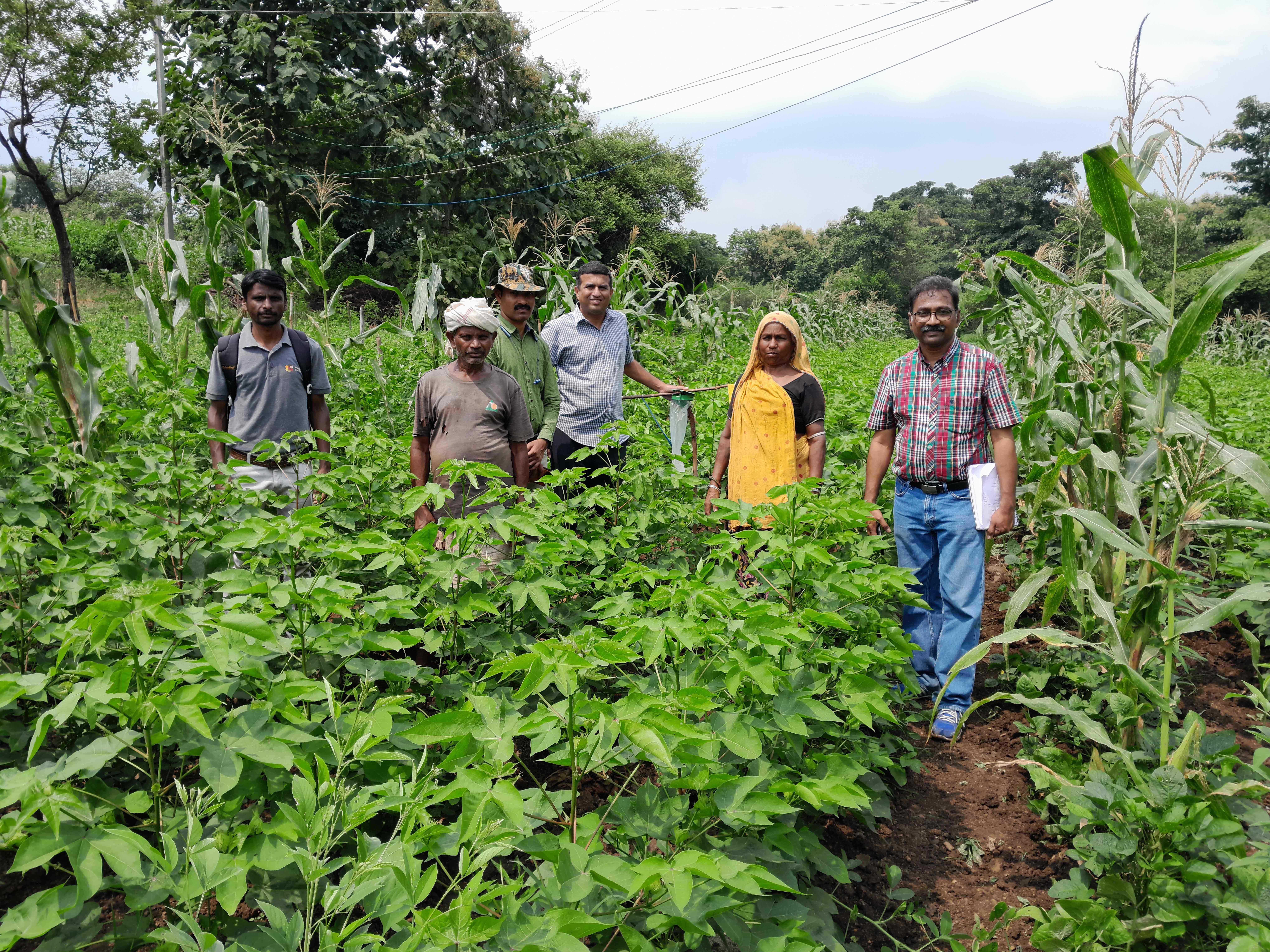
“Kering is proud to support OCA, as a grantee of the Regenerative Fund for Nature, on their mission to promote organic and regenerative agriculture, foster sustainable communities and a thriving future.”
"The efforts put into our Partnership Initiative are now bearing fruit: around 11,000 farmers and ten brands and retailers are profiting from sustainably produced cotton in the supply chains. Committed purchase quantities are just as important as long-term business relationships. We are particularly pleased that "decent work in cotton farming" training materials developed last year can be implemented in the field. We see this as a valuable complement to organic farming and an important cornerstone for sustainable cotton cultivation."
Pakistan has had a history of near self-sufficiency in cotton. Over recent years though, the share of cotton production has declined. Pakistan has become a large net importer, unable to keep up with factory exports. The country had no significant history of organic cotton farming, especially since the introduction of genetically modified cotton.
OCA decided to step in and make a difference. After a successful pilot implemented in 2021-22, we launched our fieldwork in 2022. But unfortunately, tragedy struck the country during the summer of the same year, with floods affecting millions of people and over one million hectares of agricultural land. Notably, the Balochistan and Sindh provinces were hit by the hardest floods, with damaged public infrastructure and stagnant water being a significant threat to the population.
Beyond that, crop losses, especially cotton, were severe, disturbing the livelihoods of arming communities and the country’s GDP. So, in September 2022, OCA called for relief funding mobilized through our local partner WWF-Pakistan. We encouraged our community to donate to immediate support rural cotton farms in the affected regions.
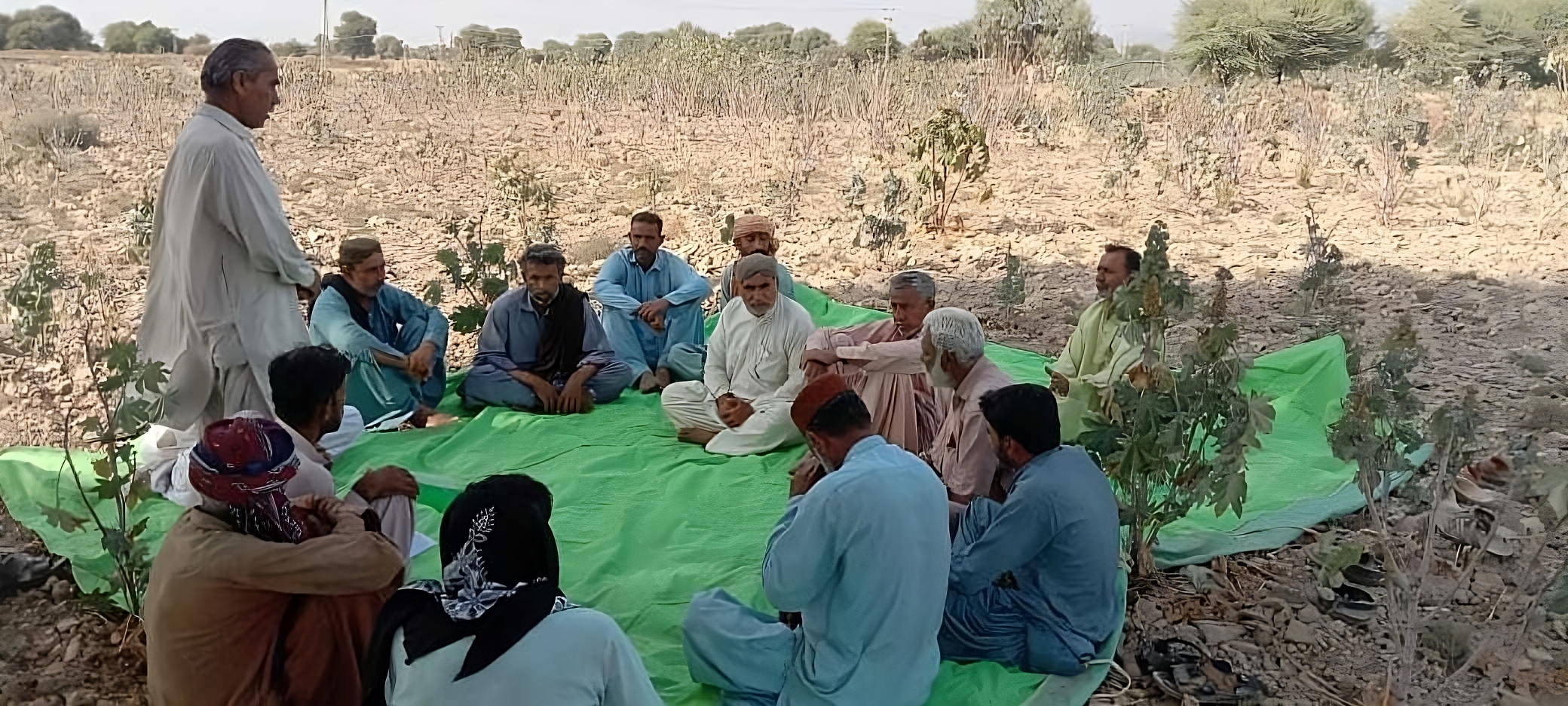
"Thanks to the financial support of our textile partners and international organisations, such as OCA, we have supported the organic cotton farmers of Barkhan, Kohlu, Khuzdar, and Lasbela districts of Balochistan. Initially, the most affected farming families were provided with first-necessity aid. Our field staff then added damage assessment missions and allocated flood appeal funds to support the home-rebuilding efforts."
In the 2022-23 season, we onboarded 1,274 cotton farmers across the Baluchistan and Punjab region on the journey towards organic in a challenging context. Together with three Implementing Partners and two local partners, we developed market linkages, set up two seed trials, and welcomed OCA's first team member in Pakistan. We have also provided organic cotton farmers with organic fertilizers and bio-pesticides to produce the cotton. This support entails saving costs on cultivation, improving soil and crop health through biological methods, reducing the threat of chemical contaminations, and improving the area's environmental health.
We are committed to the future of Pakistan and its organic farming communities. Through collaboration, we are driving the growth of organic production in Pakistan and investing long-term toward a healthy and thriving organic cotton sector.
Kerli Estariya is an active in-conversion farmer in OCA’s Farm Programme and member of the Women Farmer Producer Organization (FPO) based in Awali, a village in the state of Madhya Pradesh. She comes from a background of using conventional farming methods with her family, having used chemical pesticides and fertiliser on their land for the past 20 years. When the family met the team of OCA’s Implementing Partner (IP), they began their transition to organic. Kerli tells us that over time, the use of chemicals on the land led to decreased yields. As cotton is the primary source of income for her family, including her husband, son, daughter-in-law and three grandchildren, she needed to act.
Thanks to the work of local field staff, the family received training on organic farming practices, including the preparation of bio-inputs, with fertilizer coming from their livestock. During the 2021-22 cotton growing season, she produced 700 kg of seed cotton, earning INR 56,065 (663 Euro).
Her positive experience with organic cultivation has encouraged her to expand these practices to her other crops as they, “help her maintain her family’s health.” Additionally, she states, “The low cost of organic cultivation, coupled with the support I receive with the immediate payment process in place, means I can look to the future, fully organic.”
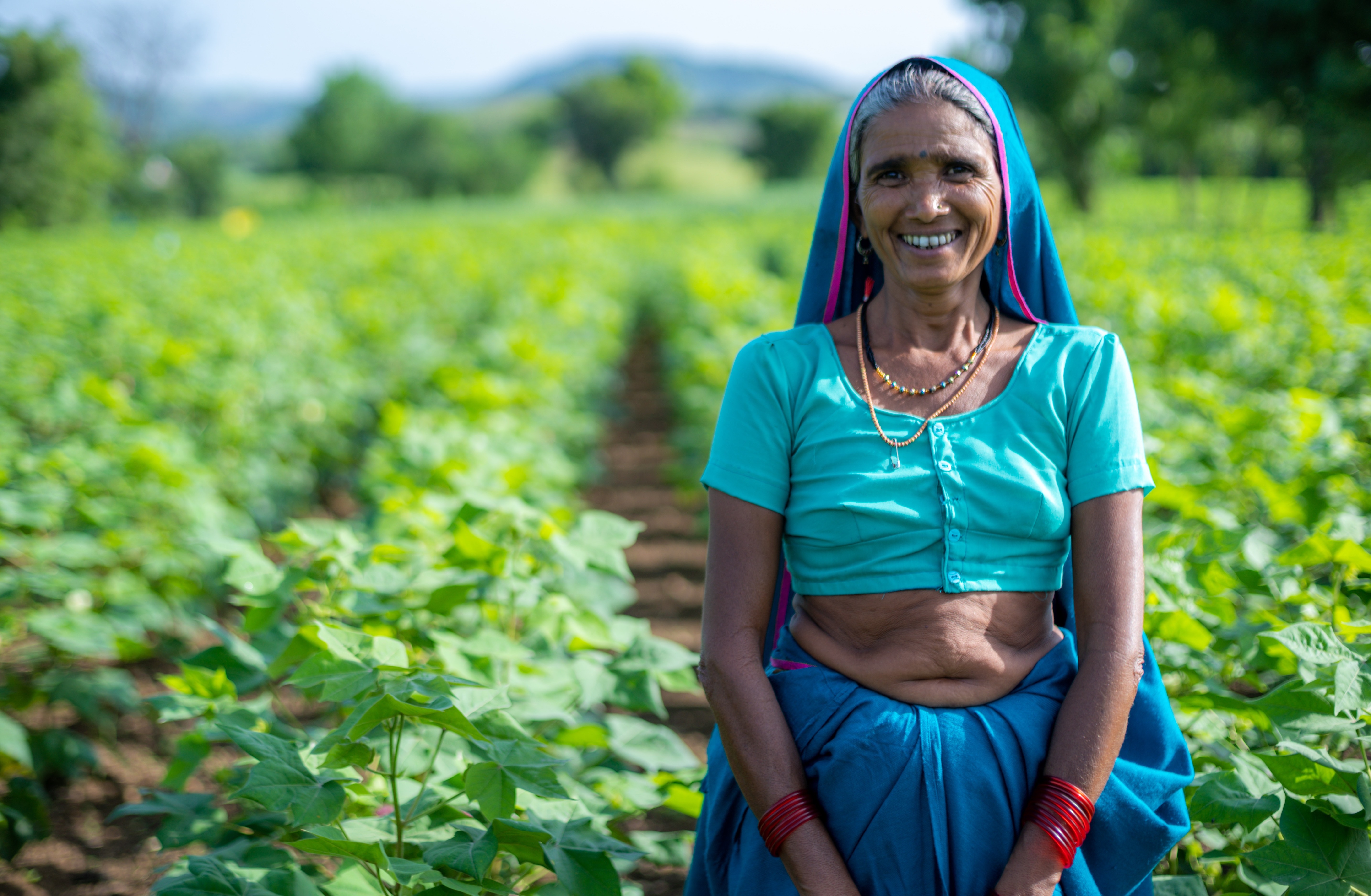
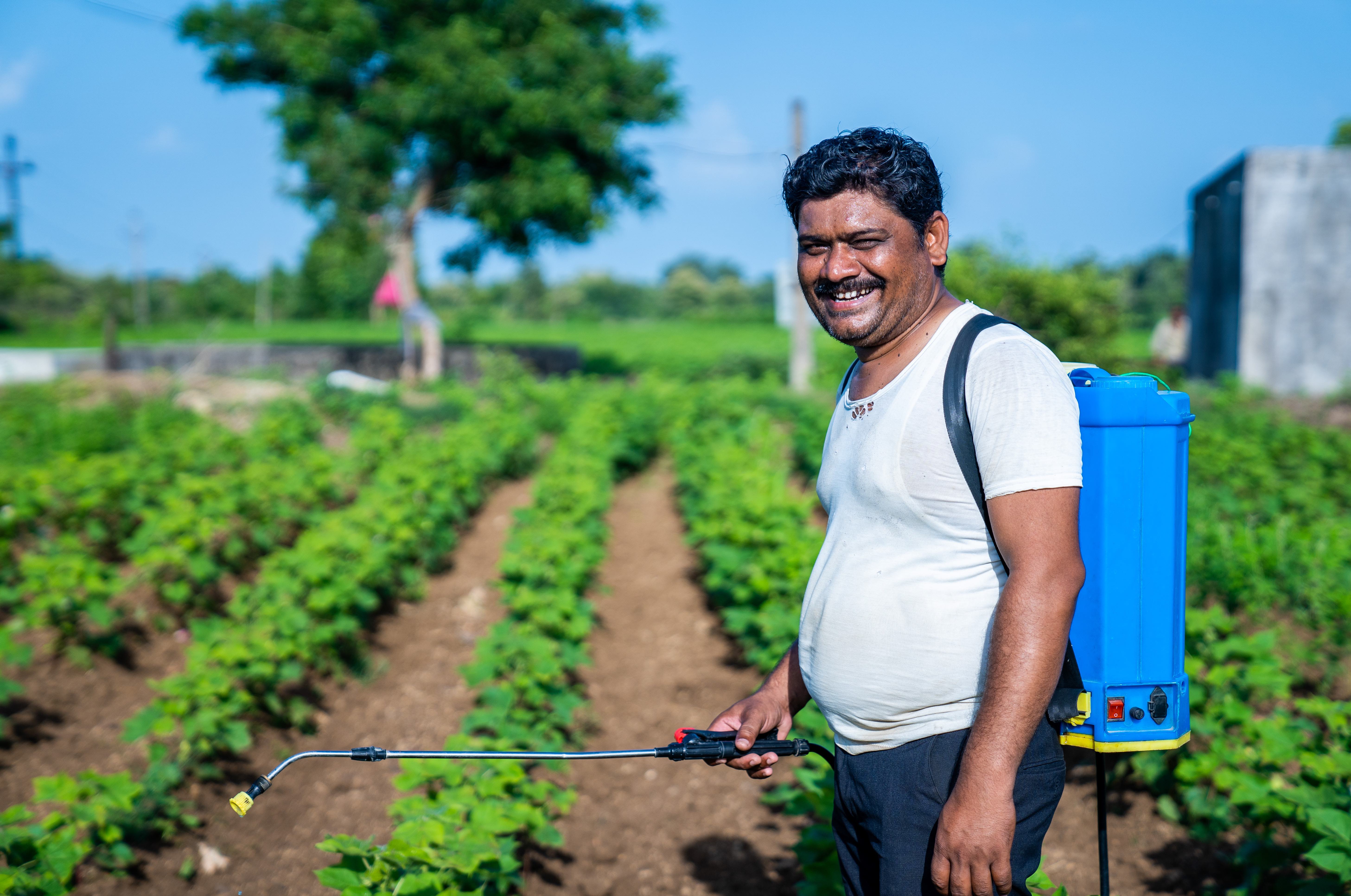
Dipak, based in Kutki, a village in Wardha, recently shifted from conventional farming using chemical inputs to organic methods. He did so last season, through the OCA Farm Programme and hasn’t looked back. Last season, he recorded a harvest of 6,700 kg which resulted in a net payment of INR 418,375 (4,944 Euros), received two days after procurement. Most importantly, the ability to reduce costs has been key in him maintaining strong net earnings. Dipak additionally received a premium payment of INR 30,820 (372 Euros). “I do not want to go back to the conventional method of farming,” he states.
He goes on to say, “The biggest part of my investment was used for fertiliser and pesticides, and in turn I see it has negatively affected the soil health of my agricultural land. Now, maintaining a rich living soil is my priority.” The positive impact of knowledge sharing, training, support services and empowering farmers to be self-sufficient has encouraged farmers to transition to organic practices. Dipak shares with us his thoughts, “I have received training on different aspects of organic farming, including the preparation and application of bio-inputs which have been vital in my ability to reduce costs.” OCA’s work through its local Implementing Partners has seen a wave of conventional farmers joining our in-conversion programme, helping us scale organic cotton growth.
